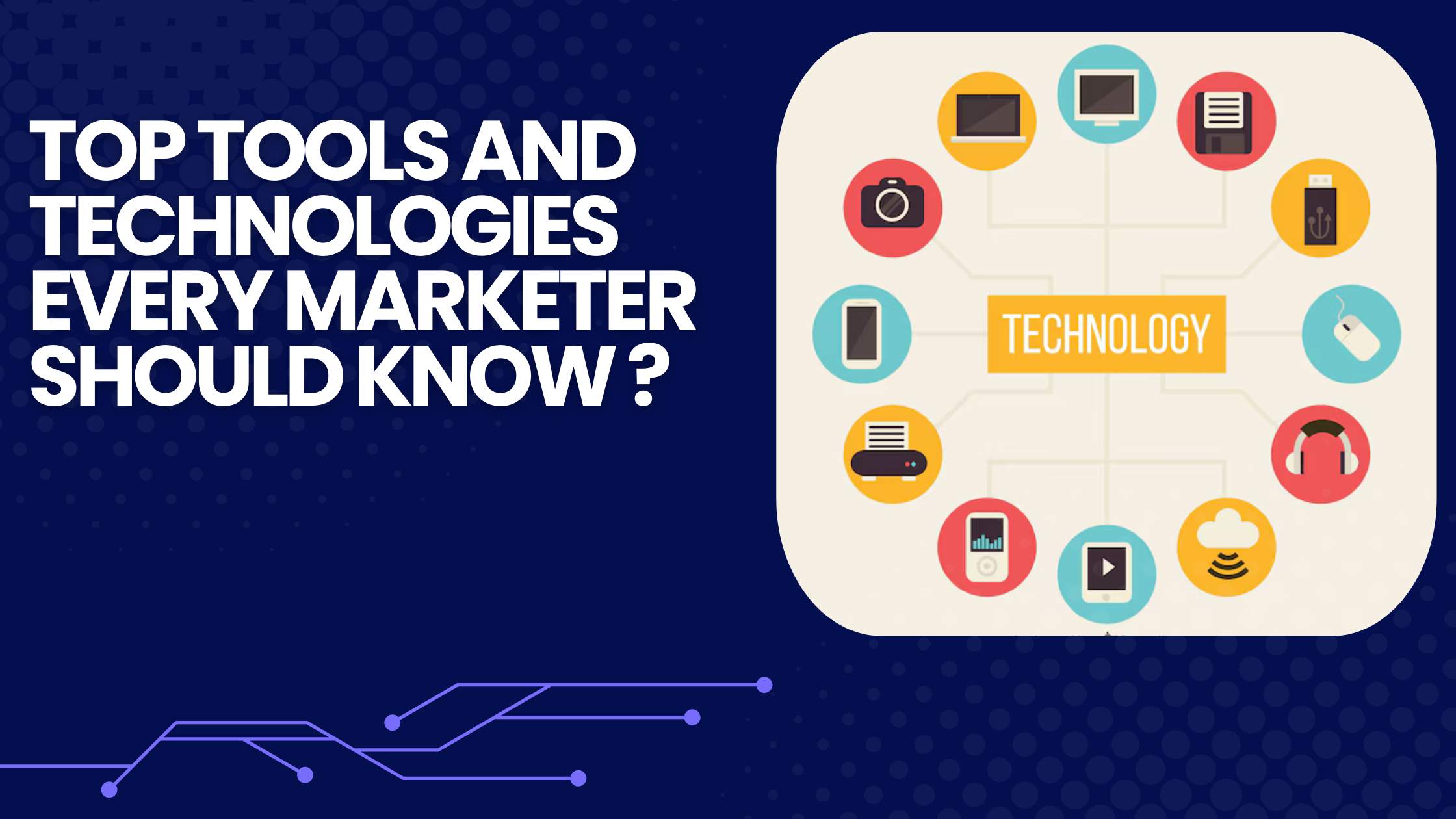Tools and technologies
In the ever-evolving landscape of digital marketing, staying abreast of the latest tools and technologies is crucial for success. These advancements not only streamline processes but also enhance effectiveness and efficiency in reaching target audiences. This article delves into essential technologies every digital marketer should be familiar with to stay competitive in the industry.
1. Customer Relationship Management (CRM) Systems
CRM systems are pivotal in managing interactions with potential and existing customers. Tools like Salesforce, HubSpot, and Zoho CRM allow marketers to track customer interactions, manage leads, and analyze customer data. These platforms enable personalized marketing strategies and improve customer retention by providing insights into customer behavior and preferences.
2. Marketing Automation Platforms
Marketing automation tools such as Mailchimp, Marketo, and Pardot help automate repetitive tasks, including email campaigns, social media posting, and lead generation. By automating these processes, marketers can focus on strategic activities while ensuring consistent and timely communication with their audience. Automation also facilitates more targeted marketing efforts through data-driven insights.
3. Search Engine Optimization (SEO) Tools
SEO remains a cornerstone of digital marketing, and various technologies can aid in optimizing content for search engines. Tools like SEMrush, Ahrefs, and Moz provide comprehensive insights into keyword research, backlink analysis, and site audits. These technologies help marketers enhance their website’s visibility and ranking on search engine results pages (SERPs).
4. Content Management Systems (CMS)
A robust CMS is essential for creating, managing, and optimizing content. WordPress, Drupal, and Joomla are popular CMS platforms that offer flexibility and scalability for building and maintaining websites. These systems provide user-friendly interfaces and numerous plugins to enhance functionality and streamline content management.
5. Social Media Management Tools
Social media platforms are integral to digital marketing strategies, and tools like Hootsuite, Buffer, and Sprout Social simplify the management of multiple accounts. These technologies enable scheduling posts, tracking engagement metrics, and analyzing social media performance. They also facilitate effective social media campaigns and real-time interaction with followers.
6. Analytics and Reporting Tools
Data-driven decision-making is key to optimizing marketing efforts. Google Analytics, Adobe Analytics, and Matomo are essential for tracking website traffic, user behavior, and campaign performance. These tools provide detailed reports and insights that help marketers measure the effectiveness of their strategies and make informed adjustments.
7. Pay-per-click (PPC) Advertising Platforms
PPC platforms like Google Ads and Bing Ads are indispensable for managing online advertising campaigns. These technologies allow marketers to create targeted ads, manage budgets, and track performance. PPC advertising can drive immediate traffic and generate leads when used strategically.
8. Design and Creative Tools
Visual content plays a significant role in digital marketing. Tools such as Adobe Creative Suite, Canva, and Figma are essential for designing graphics, videos, and other visual assets. These technologies enable marketers to create engaging and professional-looking content that captures audience attention.
9. Conversion Rate Optimization (CRO) Tools
CRO tools like Optimizely, Crazy Egg, and Unbounce focus on improving website conversion rates. These technologies provide features such as A/B testing, heatmaps, and landing page optimization. By analyzing user interactions and testing different elements, marketers can enhance the user experience and increase conversion rates.
10. Chatbots and AI-Driven Technologies
Artificial intelligence and chatbots are transforming customer service and engagement. Platforms like Drift, Intercom, and Chatfuel offer AI-powered solutions that facilitate real-time communication with customers. These technologies provide instant responses to inquiries, streamline customer support, and enhance overall user experience.
Conclusion
Embracing the right tools and technologies is fundamental for success in digital marketing. From CRM systems and marketing automation platforms to SEO tools and chatbots, leveraging these technologies can significantly enhance your marketing strategies. Staying updated with the latest advancements and integrating them into your campaigns will ensure that you remain competitive and effective in the dynamic world of digital marketing.
According to Wedigitalstar, digital marketers can optimize their strategies, achieve better results, and drive campaign growth by mastering these technologies.

